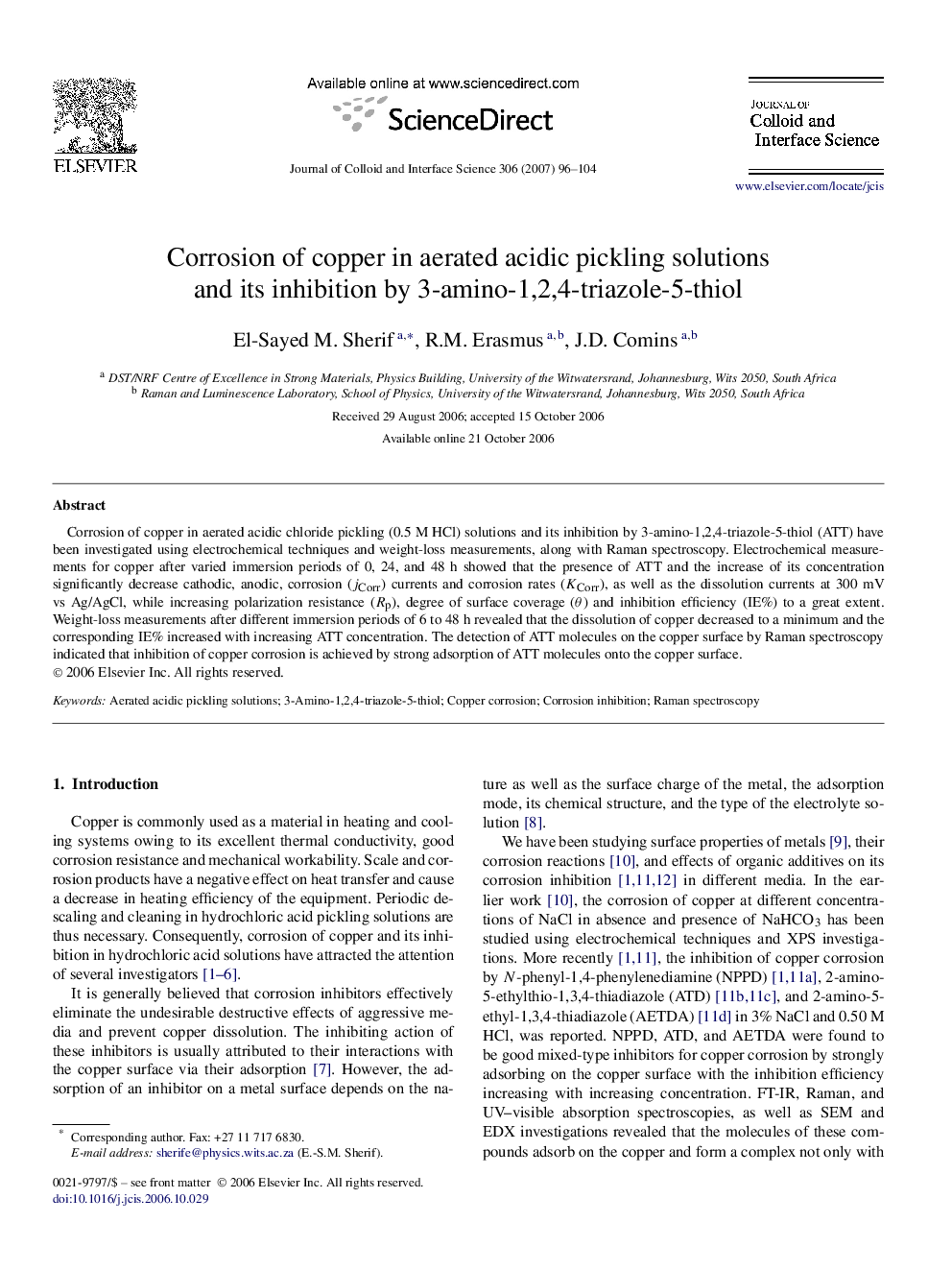| کد مقاله | کد نشریه | سال انتشار | مقاله انگلیسی | نسخه تمام متن |
|---|---|---|---|---|
| 613124 | 880715 | 2007 | 9 صفحه PDF | دانلود رایگان |

Corrosion of copper in aerated acidic chloride pickling (0.5 M HCl) solutions and its inhibition by 3-amino-1,2,4-triazole-5-thiol (ATT) have been investigated using electrochemical techniques and weight-loss measurements, along with Raman spectroscopy. Electrochemical measurements for copper after varied immersion periods of 0, 24, and 48 h showed that the presence of ATT and the increase of its concentration significantly decrease cathodic, anodic, corrosion (jCorrjCorr) currents and corrosion rates (KCorrKCorr), as well as the dissolution currents at 300 mV vs Ag/AgCl, while increasing polarization resistance (RpRp), degree of surface coverage (θ) and inhibition efficiency (IE%) to a great extent. Weight-loss measurements after different immersion periods of 6 to 48 h revealed that the dissolution of copper decreased to a minimum and the corresponding IE% increased with increasing ATT concentration. The detection of ATT molecules on the copper surface by Raman spectroscopy indicated that inhibition of copper corrosion is achieved by strong adsorption of ATT molecules onto the copper surface.
Potentiodynamic polarization curves for copper in aerated 0.5 M HCl after 0 (a), 24 (b), and 48 h (c) of electrode immersion without (1) and with 0.5 (2), 1.0 (3), and 5.0 mM 3-amino-1,2,4-triazole-5-thiol (ATT) (4) present.Figure optionsDownload as PowerPoint slide
Journal: Journal of Colloid and Interface Science - Volume 306, Issue 1, 1 February 2007, Pages 96–104